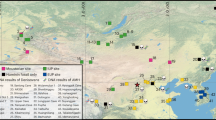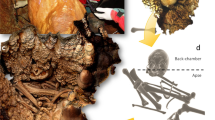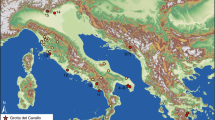Abstract
Some months ago, Mr. Guy Brunton asked me whether I would examine and report upon an Egyptian axe-head. It was one of several specimens of the same date. He was so good as to give me permission to destroy this particular specimen if it was neccessary in the interests of a full scientific investigation. This examination I have now been able to complete, and it may be of interest if I add that, except in one particular—and this, I think, would only be noticed by experts—the specimen has been in no way injured. I emphasise this, because the natural objection to their injury or destruction is the reason why so few investigations have been allowed to be made of ancient metal specimens.
This is a preview of subscription content, access via your institution
Access options
Subscribe to this journal
Receive 51 print issues and online access
$199.00 per year
only $3.90 per issue
Buy this article
- Purchase on Springer Link
- Instant access to full article PDF
Prices may be subject to local taxes which are calculated during checkout
Similar content being viewed by others
Author information
Authors and Affiliations
Rights and permissions
About this article
Cite this article
CARPENTER, H. An Egyptian Axe-head of date 1800 B.C.: its Investigation and Reproduction. Nature 127, 589–591 (1931). https://doi.org/10.1038/127589a0
Issue Date:
DOI: https://doi.org/10.1038/127589a0
Comments
By submitting a comment you agree to abide by our Terms and Community Guidelines. If you find something abusive or that does not comply with our terms or guidelines please flag it as inappropriate.



